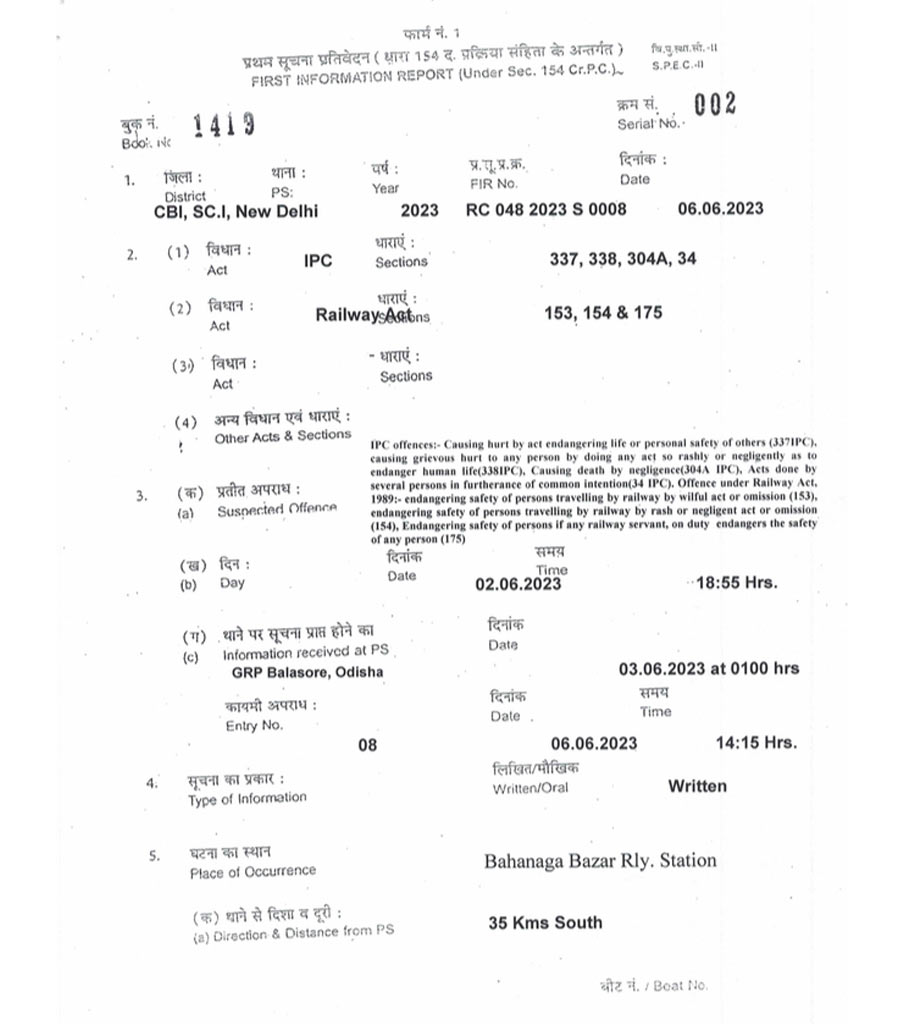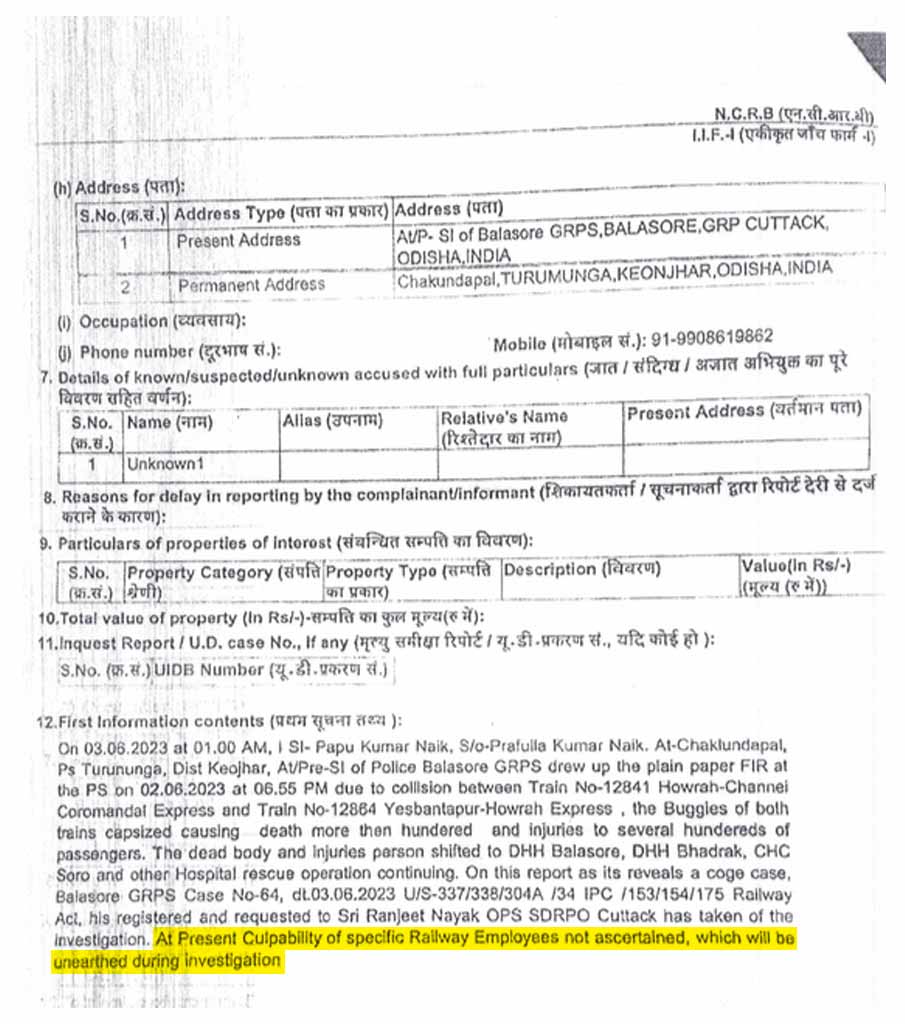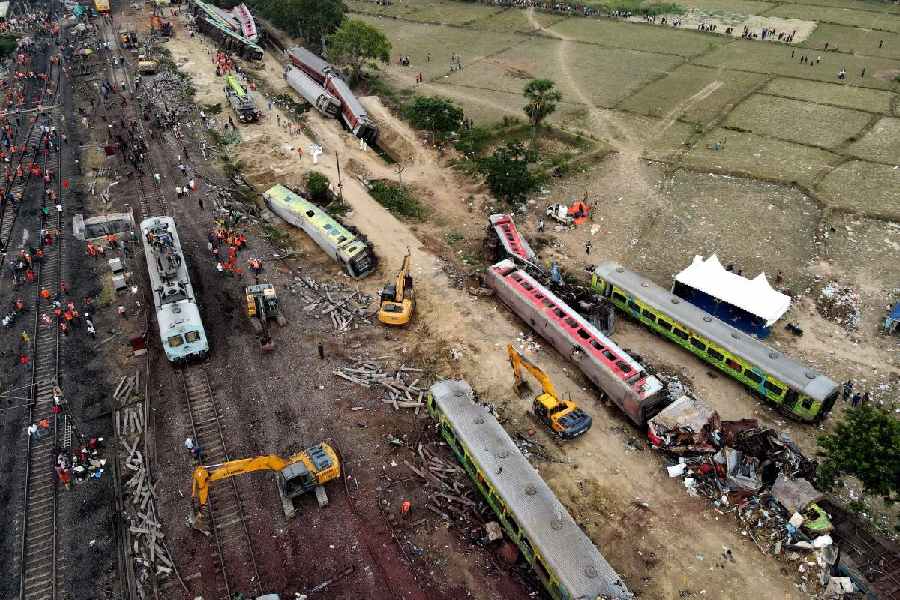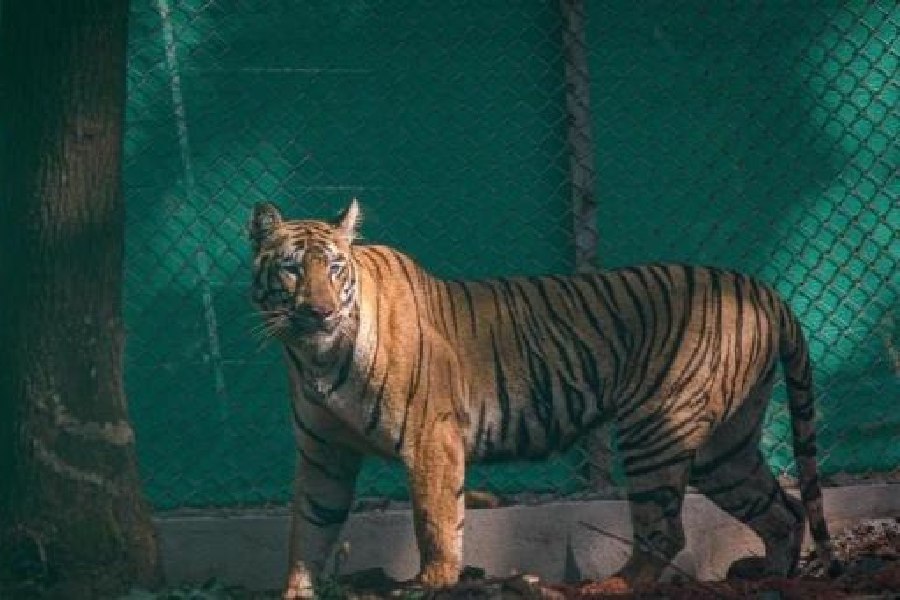On a day officers of the Central Bureau of Investigation reached ground zero and began its probe into the Odisha train tragedy amid the buzz of “sabotage”, a purported FIR copy lodged by the CBI surfaced to reveal that the central probe agency is only focusing on the “negligence” angle with no indications of “sabotage”.
The revelation coincided with Bengal chief minister Mamata Banerjee questioning the need to hand over the investigation to the CBI and calling the move an “attempt to brush the truth under the carpet”.
The FIR was filed by the agency under Indian Penal Code (IPC) sections 337 (rash and negligent act causing hurt or grievous injury), 338 (specifying maximum punishment of two years and/or a fine for offence under section 337), 304A (causing death by negligence entailing two years imprisonment and/or fine) and 34 (involvement of multiple people with common intent).
The CBI, in its FIR, also slapped the following sections of the Railways Act: Section 153 (unlawful or willful act of omission or neglect endangering passenger safety), 154 (punishment of up to one year and/or fine for committing offence under section 153) and 175 (punishment of maximum two years imprisonment of railway officials for endangering safety of passengers).
Paragraph 12 of Annexure D of the 15-page FIR and annexure outlining “first information contents” of the “plain paper FIR” filed by sub-inspector Pupu Kumar Naik, IC Balasore GRPS, some seven hours after the accident states that “at present culpability of specific railway employees not ascertained (sic), which will be unearthed during investigation.”


Portions of CBI FIR stating sabotage angle has not been prima facie made out.
Evidently, the probe body’s initial charges are in sync with the Balasore railway police FIR which states, “the unfortunate event took place due to negligence of Railway costing heavy loss to human lives and property”.
The investigation into the June 2 triple train crash involving the Howrah-Chennai Coromandel Express, which claimed over 275 lives and injured more than a thousand people, was taken over by the CBI upon request of the Railways ministry. While railways minister Ashwini Vaishnaw had declared on June 4 that the cause of the accident and the people behind it have been identified, the decision to turn over the probe to the CBI on the very same day led to questions on whether the government has found prima facie evidence to establish criminality behind the crash.
Opinions remain divided on how, despite having a green signal on the Up main track, the high-speed train could have been guided into the loop line by the automated corresponding Point 17A set in reverse, as pointed out in the preliminary joint railways probe report.
Ever since the CBI entered the probe scene, theories of conspiracy and foul play have been making rounds in various quarters of the ruling establishment.
Mamata Banerjee, for one, finds no credence in the criminality angle that’s been floating around.
“I had initially decided not to speak on this issue but I am compelled by circumstances to do so. Attempts are being made to brush the truth of this mammoth tragedy under the carpet. We must know the truth about why this accident, the biggest of the century, took place and why many people were killed. What will the CBI do? Is this a criminal case that warranted CBI involvement? This is being done to suppress the truth and evidence has been washed away,” Banerjee said at a government programme to hand out compensation to accident victims at the Netaji Indoor Stadium in Calcutta on Wednesday.
Taking a step further, Trinamul Congress spokesperson Saket Gokhale tweeted that the “Modi government was lying about sabotage”.
“If the railway system is so fail-safe which the government claims it is, then it should have been able to override human negligence, if there was one. That’s the whole point of having an electronic system. So questions would naturally arise on how good the system is, to begin with. There were red flags raised on systemic flaws from multiple quarters in the past which the ministry chose to ignore,” Gokhale, who cited the CBI FIR in his tweets, said.
“When you put out the sabotage theory, you essentially say that nothing is wrong with the system and someone has illegally tampered with it. But that’s not the case. The sabotage idea is created to mislead people and then pin the blame on someone or a group of people. That’s what the BJP ecosystem is trying to do. The minister is yet to acknowledge that yes there were prior warnings which we should have acted upon and which we didn’t,” he added.
Gokhale continued: “The CBI should have brought within its probe ambit, the warning letter highlighting faults in the railways operations system written by the principal chief operations manager of south western railway in February this year, which they haven’t.”
Former railways minister Dinesh Trivedi differs. “I had gained a thorough understanding of how the railway system works in India during my tenure as minister. And I can say with responsibility that it is fool proof. There could not have been a systemic failure unless someone tampered with it. The government is absolutely justified in getting the CBI in. It would not have done that unless it already had solid proof that there was sabotage involved,” he maintained.











